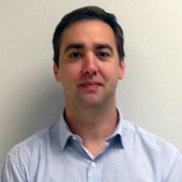Meet the Team
Directors
 Rose Marie Robertson, MD, FAHA
Rose Marie Robertson, MD, FAHA
Rose Marie Robertson, MD, FAHA, is the Science and Medical Officer of the American Heart Association. Prior to her current role she was the Chief Science and Medical Officer of the American Heart Association since 2003, on leave from her position as Professor of Medicine at Vanderbilt University Medical Center, where she joined the faculty in 1975. She received her M.D. from Harvard Medical School and trained in Cardiology at the Johns Hopkins Hospital.
Dr. Robertson’s research, in animal models and in clinical studies in healthy subjects in carefully-controlled settings, including the extreme perturbation of microgravity, as well as in patients, has defined rare and more common disorders of autonomic cardiovascular control and novel treatments. She has served on review and advisory committees for the NIH, Veterans’ Administration, American Heart Association, American College of Cardiology, European Society of Cardiology, and NASA. She is a Fellow of the American Heart Association and of the American College of Cardiology, a member of ASCI, and a founding member of the American Autonomic Society and the Association for Patient-Oriented Research. She served as President of the AHA in 2000-2001, and currently chairs the RWJF's National Advisory Committee for the Harold Amos Medical Faculty Development Award. She was honored by the CDC in 2001 with its Partner in Public Health Award.
Email: Rose Marie Robertson, MD, FAHA
 Aruni Bhatnagar, PhD
Aruni Bhatnagar, PhD
Aruni Bhatnagar is the co-Director of the AHA Tobacco Center for Regulatory Science and the Principal Investigator of Cardiovascular Injury Due to Tobacco Use project (Project 2). He is Professor of Medicine, and Professor of Biochemistry and Molecular Biology, and joined the University of Louisville in 1998. Dr. Bhatnagar is a
Justin Ragasa, MPH
Justin Ragasa is the Assistant Director of Training & Education in the A-TRAC Career Enhancement Core. He also serves as the Assistant Director for Training & Education for Atrial Fibrillation SFRN, Cardio-Oncology SFRN & AHA SURE Fellowship Programs at the Boston University School of Medicine. He completed his Masters of Public Health from Boston University School of Public Health with a concentration in Social and Behavioral Sciences. He has expertise in administering fellowships, having been the lead administrator for a variety of medical residency and fellow training programs. He has expertise in program evaluation, coordination, and administration, and has a particular focus on recruiting and retaining diverse trainees.
Email: [email protected] University Scholar and Director of the Diabetes and Obesity Center at the University of Louisville. He was elected a fellow of the American Heart Association in 2005.
Dr. Bhatnagar is a graduate of Kanpur University in India and received his post-doctoral training at the University of Texas Medical Branch at Galveston. He is known for his pioneering work on the role of the polyol pathway of glucose metabolism and how it is regulated by nitric oxide. His research interests also include cardiovascular effects of environmental pollutants, atherosclerosis, cardiovascular complications of diabetes, and sepsis. His work has led to the identification of several biochemical pathways for aldehyde metabolism and detoxification, as well as a better understanding of how pollutants and toxicants affect cardiovascular function and induce cardiovascular disease. Dr. Bhatnagar’s research is supported by several grants from the National Institutes of Health, and has led to the creation of the new field of environmental cardiology.
Dr. Bhatnagar currently serves on the Editorial Boards of both Circulation Research and Circulation, has participated in over 50 National Institutes of Health review panels and is the author of more than 235 publications.
Email: Aruni Bhatnagar, PhD
Investigators
 Emelia J. Benjamin, MD, ScM, FACC, FAHA
Emelia J. Benjamin, MD, ScM, FACC, FAHA
Emelia J. Benjamin is the Director of the Career Enhancement Core. She is a co-PI of the Framingham Heart Study, a clinical cardiologist at Boston Medical Center, a Professor of Medicine and Epidemiology at Boston University. Her research focuses on genetics, epidemiology, and outcomes of a variety of cardiovascular conditions and markers, with particular expertise in atrial fibrillation. Additionally, she is Assistant Provost for Faculty Development, the Vice Chair for Faculty Development and Diversity at the Boston University Medical Campus and co-leader of the Boston University Medical Campus early-career and mid-career longitudinal faculty development programs. She has successfully mentored numerous medical students, residents, fellows and early career faculty, and has won institutional and national mentoring awards.
Email: Emelia Benjamin, MD, ScM, FACC, FAHA
 Michael J. Blaha, MD, MPH
Michael J. Blaha, MD, MPH
Michael Blaha is the Principal investigator of the Cardiovascular effects of tobacco products in community-based cohorts project (Project 3). Dr. Blaha is a cardiologist and researcher in clinical epidemiology with faculty appointments in both Cardiology and Epidemiology at the Johns Hopkins Bloomberg School of Public Health. He is a member of the Ciccarone Center for the Prevention of Heart Disease and serves as the center’s Director of Clinical Research. At the national level, he serves on both the Statistics and Fellow-in-Training/Early Career Committees of the American Heart Association and is an associated editor for the website Cardiosource and a member of the Cardiometabolic Alliance through the American College of Cardiology. He is co-chair of the Cross Cohort Collaboration (CCC), is a co-PI of The FIT Project, and is PI of the Coronary Artery Calcium Consortium. His primary research interest is in subclinical vascular disease imaging and preventive cardiology. His clinical emphasis is on novel ways of inducing behavioral change, including improvements in rates of smoking cessation.
Email: Michael Blaha, MD, MPH

Alex P. Carll, PhD
Alex Carll is an investigator working on the Cardiovascular Toxicity of Tobacco Products project (Project 1). He is Assistant Professor in the Department of Physiology at the University of Louisville. Over the past twelve years, he has investigated the adverse cardiovascular effects of inhaled environmental agents in animals to add biological plausibility to epidemiologic research and inform public health policy. The Carll laboratory studies the biological mechanisms by which air pollutants weaken the heart, impair cardiac conduction, and compromise hemodynamics, and whether such effects occur through the autonomic nervous system. His research has segued into epidemiological research, examining associations between exposure to volatile organic compounds (including carbonyls in tobacco smoke) and electrophysiological and mechanical dysfunction in the heart, thus moving into the translational toxicology territory.
Email: Alex Carll, PhD
 Lung-Chi Chen, PhD
Lung-Chi Chen, PhD
Lung-Chi Chen is a collaborator in the Cardiovascular Toxicity of Tobacco Products project (Project 1). He is a professor in the Department of Environmental Medicine and the Director of NYU's Inhalation Toxicology Laboratory. He has extensive experience in the measurement of cardiopulmonary effects of inhaled pollutants and is an expert in the generation and characterization of exposure atmospheres and the performance of toxicology studies using all routes of exposure. He has served on several national and international advisory committees and study sections in the field of toxicology. Currently, he directs a number of research projects focusing on the long-term cardiovascular effects of inhaled nanoparticles as well as ambient particles. He is the author/co-author of over 190 research papers and book chapters dealing with the mechanisms underlying the adverse cardiopulmonary effects resulting from inhalation exposure to occupational and environmental air pollutants.
Email: Lung-Chi Chen, PhD
 Daniel J. Conklin, PhD
Daniel J. Conklin, PhD
Daniel Conklin is the Principal Investigator of the Cardiovascular Toxicity of Tobacco Products project (Project 1). Dr. Conklin is Professor of Medicine and the Director of the Inhalation Facility at the University of Louisville. His research focuses on how exposure to unsaturated and saturated aldehydes either from exogenous sources (e.g., air pollution, tobacco smoke) or endogenously generated contributes to cardiovascular injury and pathogenesis of multiple disease states. He is committed to studying the potential deleterious effects of tobacco and nicotine exposures in humans and mice to gain insight into the mechanisms whereby these factors conspire to negatively influence cardiovascular health. His research has demonstrated the important role that aldehyde metabolism plays in protecting against cardiovascular target organ injury and disease pathogenesis.
Email: Daniel Conklin, PhD
 Andrew P. DeFilippis, MD, ScM
Andrew P. DeFilippis, MD, ScM
Andrew DeFilippis is leading the Vanderbilt site of the Cardiovascular effects of tobacco products in community-based cohorts (Project 3). He is a Cardiologist and Associate Professor of Medicine in the Division of Cardiovascular Medicine at the Vanderbilt University Medical Center, and an Adjunct Faculty at the University of Louisville and Johns Hopkins University. He studies myocardial injury and the development of biomarkers of atherosclerosis and has expertise in cohort development, proteomics, lipidomics and metabolomics as powerful tools for biomarker discovery. He also has significant experience with the Multi-Ethnic Study of Atherosclerosis (MESA) data which he has used to evaluate biomarkers of subclinical and clinical atherosclerotic cardiovascular events. He is a translational researcher whose work focuses on cohort development, clinical cardiology, bio-banking, atherosclerosis, and metabolomics to identify and characterize the impact of tobacco use on cardiovascular risk.
 Vernat J. Exil, MD
Vernat J. Exil, MD
Dr. Exil is Professor of Pediatrics/ Cardiology at Saint Louis University, SSM-Cardinal Glennon Children’s Hospital. Vernat Exil is one of the investigators in the Cardiovascular Toxicity of Tobacco Products project (Project 1). He is currently the Medical Director of the Pediatric Heart Transplant & Heart Failure and Medical Director/ Chief of the Division of Pediatric Cardiology at Cardinal Glennon Children's. His background in basic science research includes studies in mitochondrial fatty acid oxidation in animal models and patients. Most recently, his research focused on the trans-generational epigenetic transmission of the effects of gestational exposure to secondhand smoke, leading to bronchopulmonary dysplasia and exacerbated allergic asthma. His work involved looking at the toxic effects of gestational exposure of tobacco products on human placenta, bronchopulmonary dysplasia (BPD), allergic asthma in children and young adults.

Jessica L. Fetterman, PhD
Jessica Fetterman is part of the Boston team of researchers working on the Cardiovascular Toxicity of Tobacco Products project (Project 1) and the Cardiovascular Injury Due to Tobacco Use (Project 2) projects. She also serves as investigator in the Career Enhancement Core and assists the team with the Core’s training activities. She is Assistant Professor of Medicine at the Boston University School of Medicine. Dr. Fetterman’s research interests include Mitochondrial Genetics, Mitochondrial Physiology, Regulatory Tobacco Sciences, E-cigarettes, and Vascular Biology. Her research focuses on the contribution of mitochondrial genetic variation and abnormalities to cardiovascular disease in the presence of risk factors including tobacco product use. She has used innovative techniques to demonstrate that mitochondrial quality control, mitophagy, is impaired in the diabetic endothelium and that pharmacologic up-regulation of mitophagy restores eNOS signaling, suggesting that mitophagy may be a novel therapeutic target in the treatment of diabetic vascular disease.
Email: Jessica Fetterman, PhD
 Michael E. Hall, MD
Michael E. Hall, MD
Michael Hall is leading the Mississippi site of the Cardiovascular effects of tobacco products in community-based cohorts (Project 3) and a part of the research team for the Cardiovascular Injury Due to Tobacco (Project 2). He is an Assistant Professor in the Department of Medicine and Co-Director of the Cardiac Imaging in the Division of Cardiology at the University of Mississippi Medical Center. He is an investigator with the Jackson Heart Study with a focus on cardiovascular disease risk factors. His major research interests are in cardiovascular and renal physiology, clinical cardiology and advanced cardiovascular imaging. He has ongoing research projects using experimental animal models of cardiovascular and renal disease and clinical studies using novel magnetic resonance imaging techniques in the heart and kidneys as well as proteomic techniques. He also has significant expertise with multi-cohort collaborations and serve as a member of the TOPMed Smoking Working Group, co-convener of the TOPMed Cardiac Working Group and member of the Cross Cohort Collaboration (CCC) Consortium.
Email: Michael Hall, MD
 Naomi Hamburg, MD, MS
Naomi Hamburg, MD, MS
Naomi Hamburg is the project lead for the Cardiovascular Injury Due to Tobacco Use (Project 2) for the Boston site. She is Professor of Medicine at the Boston University School of Medicine with a focus on studying mechanisms and clinical relevance of vascular function to cardiovascular and metabolic diseases. She is Chief of the Vascular Biology Section and supervises a translational research program to study the vascular physiology in patients, collect human tissue, and perform basic studies within the same research unit. She is highly experienced with methods evaluating endothelial cell phenotype and has been involved in the development of the methodology to characterize freshly isolated human endothelial cells. Her recent studies using freshly isolated endothelial cells have shown alterations in endothelial phenotype including inflammatory activation, mitochondrial dysfunction and reduced eNOS signaling in diabetes.
Email: Naomi Hamburg, MD, MS
 Joy L. Hart, PhD
Joy L. Hart, PhD
Joy Hart is a senior investigator in the Cardiovascular Injury Due to Tobacco Use (Project 2) and the Cardiovascular effects of tobacco products in community-based cohorts (Project 3) projects. Dr. Hart is Professor in the Department of Communication at the University of Louisville. Her primary interests are in health and organizational communication, particularly in message production and interpretation as well as links to healthy workplaces and lifestyles. In particular, her work examines discourse, communication skill, culture, and message strategies. For the past several years, she has been studying tobacco control communication as well as communication surrounding HIV/AIDS, environmental communication (and creating sustainable communities, through interlinkages in environmental, economic, and societal/community functioning and health), and international health communication. These projects have resulted in several books and a number of journal articles and book chapters. Her work has also examined sustainability and health, including a project examining health beliefs and practices in rural villages in Belize and another analyzing message strategies used in tobacco control.
Email: Joy Hart, PhD

Glenn A. Hirsch, MD, MHS, FACC
Glenn Hirsch is part of the research team for the Cardiovascular Injury Due to Tobacco Use (Project 2) project and leads the Career Enhancement Core with Dr. Benjamin. He joined the National Jewish Health hospitals as the Chief of Cardiology in 2018. Prior to this, he was a Professor of Medicine at the University of Louisville and Clinical Director of the Division of Cardiovascular Medicine and the Program Director of the Cardiovascular Medicine Fellowship. His research interests revolve around the use of imaging and atherosclerosis from analyzing risk factors such as smoking, diabetes, obesity extending to left ventricular remodeling and heart failure. He served as Assistant and then Associate Editor of the American College of Cardiology Self-Assessment Program and co-chair of the American College of Cardiology Question Writing Committee and is currently the Associate Editor of ACCEL (American College of Cardiology Extended Learning).
Email: Glenn Hirsch, MD, MHS, FACC
 Rachel J. Keith, MSN, PhD
Rachel J. Keith, MSN, PhD
Rachel Keith is a key investigator in the Louisville team of researchers working on the Cardiovascular Injury due to Tobacco Use study (Project 2). She is an Assistant Professor of Medicine at the University of Louisville. Her research and clinical experience have been focused on studying prevention of cardiovascular disease and novel identifiers of early disease. Her training as a scientist and a nurse practitioner have given her a unique perspective to study the correlation between environmental exposures and health outcomes. Over the last few years, she has successfully developed and compiled effective tools for evaluating perceptions of health, cardiovascular health, tobacco exposure, e-cigarettes, and biomarkers of injury.
Email: Rachel Keith, MSN, PhD

Matthew A. Nystoriak, PhD
Matt Nystoriak is a part of the Louisville team working on the Cardiovascular Toxicity of Tobacco Products project (Project 1). Dr. Nystoriak is Assistant Professor of Medicine at the University of Louisville. His research has been focused on cellular electrophysiological and functional assays to examine cell membrane potential and transmembrane ion channel activity. The goal has been to improving understanding of the regulation of cardiovascular ion channel function and how regulatory cellular signaling pathways may become altered disease states to contribute to vascular and myocardial pathology.
Email: Matthew Nystoriak, PhD
 Timothy O’Toole, PhD
Timothy O’Toole, PhD
Timothy O'Toole is a part of the Bioanalytic and Biomarker Core research team. He is an Assistant Professor of Medicine and a part of the in the Diabetes and Obesity Center at the University of Louisville. He is experienced in flow cytometry, cell biology, and signal transduction and has a strong interest in cardiovascular diseases and endothelial cell biology. His research interests focus on the function and regulation of the endothelium in various disease states and his studies have looked into the effects of diabetes and pollutant exposures on cardiovascular and hematopoietic outcomes including progenitor cell number and function, immune cell responses and platelet function.
Email: Timothy O’Toole, PhD
 Thomas Payne, PhD
Thomas Payne, PhD
Thomas Payne is a senior investigator working on the Cardiovascular Injury Due to Tobacco Use (Project 2) and the Cardiovascular effects of tobacco products in community-based cohorts (Project 3) projects. He is a Professor in the Department of Otolaryngology and Communicative Sciences at the University of Mississippi Medical Center (ACT Center for Tobacco Treatment, Education and Research). He is also an investigator in the Jackson Heart Study, an NIH-supported longitudinal study of cardiovascular disease risk among African-Americans. His primary research focus has been in tobacco dependence, having contributed to other behavioral medicine efforts, particularly in the area of cardiovascular risk and disease. Over the past 25 years, his research has spanned a variety of topics related to understanding factors that predict differences in smoking behavior, mediators of nicotine dependence, such as genetic, environmental, intra- and interpersonal influences (e.g., cue reactivity, race, gender, stress, medical co-morbidities, etc.), predictors of treatment compliance and abstinence, and evaluation of treatment outcomes and dissemination efforts. He has served as a behavioral specialist in the Trials of Hypertension Prevention (TOHP-II) and has contributed to a number of publications based on the Atherosclerosis Risk in Communities (ARIC) dataset. He has overseen a variety of clinical and research activities which have resulted in the recruitment of substantial numbers of individuals over the previous 15 years.
Email: Thomas Payne, PhD

Shesh Rai, PhD
Shesh Rai is a senior biostatistician and co-investigator in the Center’s Administrative Core. Dr. Rai is a Fellow of the American Statistical Association, the Wendell Cherry Chair in Clinical Trial Research at the University of Louisville and a Professor of Bioinformatics and Biostatistics. He is also the Director of the Biostatistics Shared Facility at the James Graham Brown Cancer Center. He has many years of expertise designing and reviewing clinical trials as well as reviewing a wide range of studies as a committee and board member in various capacities. Also, he has more than 13 years of experience designing pre-clinical, cancer and heart failure clinical trials, and retrospective and prospective clinical studies, including high throughput observations. Additionally, he has more than 140 publications, serves as a statistical reviewer for many national and international scientific journals, including serving as an editorial board member in five journals.
Email: Shesh Rai, PhD
 Carlos Rodriguez, MD, MPH, FACC
Carlos Rodriguez, MD, MPH, FACC
Carlos Rodriguez is an investigator in the Cardiovascular effects of tobacco products in community-based cohorts project. He was an Associate Professor of Medicine and Epidemiology at Wake Forest University and his research was focused on cardiovascular epidemiology, Hispanic cardiovascular health, hypertensive heart disease, and echocardiography. He is currently a full Professor at Albert Einstein College of Medicine (COM) with a joint appointment in Epidemiology, Population Health and Internal Medicine (Cardiology). He is the principal investigator of a study aimed to identify cardiac structure and function within the HCHS/SOL cohort of Hispanics. He has served on the American Heart Association Science Advisory and Coordinating Committee and currently serves as Vice-Chair of Academic Affairs and Director of Clinical Cardiovascular Research for the Department of Cardiology at Albert Einstein COM. He is also a contributing member on several large national cohort cardiovascular epidemiologic studies and was lead chair for the American Heart Association Scientific Advisory on the Cardiovascular Health of Hispanics in the United States.
Email: Carlos Rodriguez, MD, MPH, FACC

Israel D. Sithu, PhD
Israel Sithu is a member of the research team of the Bioanalytics and Biomarker Core. He is an Assistant Professor of Physiology and Biophysics at the University of Louisville. Broadly, his research examines the molecular mechanisms of inflammatory disease process in order to inhibit progression of the disease. He has studied endothelial function and platelet activation for the last 10 years and has recently focused on examining the effect of acrolein and cigarette smoke on platelet activation and vascular dysfunction. To elaborate, his work has been focused on molecular mechanisms by which adhesion molecules such as intracellular adhesion molecule-1 (ICAM-1) facilitate vascular inflammation; mechanisms of platelet activation; and effect of environmental pollutants and tobacco products on vascular functions.
Email: Israel Sithu, PhD
 Sanjay Srivastava, PhD
Sanjay Srivastava, PhD
Sanjay Srivastava is the Director of the Center’s Bioanalytical and Biomarker Core. He is Professor of Medicine and Director of the Superfund Research Center at the University of Louisville. He has spent much of his career studying the cardiovascular toxicity of aldehydes, suggesting that aldehydes generated by oxidative stress crosslink with the protein in the endoplasmic reticulum (ER). His current research interest is focused on delineating the mechanisms by which environmental pollutants and tobacco products cause endothelial activation, vascular inflammation, insulin resistance and atherosclerosis. He has chaired or been a member on more than 25 NIH Study Sections, serves on the editorial board of Circulation Research and is a chartered member of Atherosclerosis and Inflammatory of the Cardiovascular System (AICS) study section at NIH.
Email: Sanjay Srivastava, PhD

Andrew C. Stokes, PhD
Andrew C. Stokes, PhD is an Assistant Professor of Global Health at the Boston University School of Public Health and a Co-Investigator at the AHA Tobacco Center for Regulatory Science (A-TRAC). Stokes received his PhD in Demography and Sociology from the University of Pennsylvania. His research applies the analytic tools of demography to population health, with a focus on tobacco regulatory science. His research portfolio includes development of novel methods in tobacco epidemiology and work on the cardiopulmonary health effects of emerging tobacco products, such as electronic cigarettes. In addition to his research, Dr. Stokes serves as Deputy Editor at the Journal of Health and Social Behavior and directs the Master of Science in Population Health Research Program at Boston University.
 Kandi L. Walker, PhD
Kandi L. Walker, PhD
Kandi Walker is a part of the research team working on the Cardiovascular Injury Due to Tobacco Use (Project 2) and the Cardiovascular effects of tobacco products in community-based cohorts (Project 3) projects. She is a Professor in the Department of Communication at the University of Louisville. For over 15 years her work has explored the intersection between health and interpersonal communication looking at how people perceive the social world surrounding health issues. Her research primarily focuses on health, family, and interpersonal communication; specifically, her research examines how people talk and behave when an illness is present, how people perceive healthy lifestyles, and how people perceive and communicate about risky health behaviors. Her research has resulted in a book, “Talking Tobacco”, which talks about some of the interpersonal, organizational, and mediated issues surrounding tobacco (e.g., bans, cultural issues, social media messages). She also has two other edited books about communication and health issues.
Email: Kandi Walker, PhD
 Joseph Wu, MD, PhD
Joseph Wu, MD, PhD
Joseph Wu is a co-investigator in the Cardiovascular Toxicity of Tobacco Products project (Project 1). He is the Director of Stanford Cardiovascular Institute & Simon H. Stertzer Endowed Professor in Department of Medicine (Cardiology) and Department of Radiology at the Stanford School of Medicine. Dr. Wu has over 300 publications and his research delves into the biological mechanisms of patient-specific and disease-specific induced pluripotent stem cells (iPSCs). His work uses a combination of molecular/cellular biology, genomic-epigenomic-transcriptomic profiling, tissue engineering, stem cells, cellular & molecular biology, physiological testing, and molecular imaging technologies to better understand molecular and pathophysiological processes. He was a recipient of the National Institutes of Health Director’s New Innovator Award in 2008, the NIH Roadmap Transformative R01 Award in 2009 and the Presidential Early Career Award for Scientists and Engineers from President Obama at the White House 2010. He currently serves as the Chair of the AHA Research Committee and is on the Scientific Advisory Board for the Keystone Symposia, FDA Cellular, Tissue, and Gene Therapies Advisory Committee and the AHA National Board of Directors.
Email: Joseph Wu, MD, PhD
Project/Core Contacts

Anshula Kesh, BDS, MPH
Anshula Kesh is the Research Operations Manager in the Center’s Administrative Core and American Heart Association. She completed her bachelor’s degree in dental surgery in India and received her Master’s in Public Heath from the University of Texas Health Science Center. She has experience in managing clinical trails in emergency medicine settings and research in vulnerable populations. In her previous positions, she was part of a team of researchers conducting clinical research studies on smoking cessation in lower socioeconomic status and homeless populations, looking at correlation of health behaviors like diet and physical activity to health outcomes. Her clinical and public health training gave her a wide range of experience in development of study protocols, data collection and management and regulatory compliance.
Email: Anshula Kesh, BDS, MPH

Jennifer Hall, PhD
Dr. Jennifer Hall serves as the Chief of Data Science of the American Heart Association. Dr. Hall is also an adjunct Professor in the Department of Medicine at the University of Minnesota. In her roles at the AHA, Dr. Hall is responsible for directing an innovative research program in data science and strategizing solutions that enable the research community to test questions of the highest impact using the most effective and novel approaches. Dr. Hall is responsible for overall data management and data analysis for ATRAC. The data is managed in a central location in secure workspaces on the AHA Precision Medicine Platform to enhance collaboration across projects, data curation, method and tool development.
Email: Jennifer L. Hall, PhD

Laura Norris
Laura Norris is the Program Manager for the ATRAC grant and has been with the American Heart Association for seven years. As the Program Manager she is responsible for managing the Center’s business and financial affairs, facilitating all necessary procurement, and monitoring budget pipelines and coordinating activities between the partner institutions. She also serves as the Center’s liaison with all AHA administrative departments, including finance, procurement, legal and government grants to ensure the Center is in compliance with internal policies and sponsor regulations. Ms. Norris obtained a bachelor’s degree in business administration from Texas Tech University.
Email: [email protected]

Remy Poudel
Mr. Poudel is a Senior Statistician in the American Heart Association’s Quality Outcomes Research Analytics (QORA) division. His role on the ATRAC grant is to co-lead the data management and analytics core for the statistical design, methodology development, and supervising analysis of data. He is responsible for biostatistical consulting, analytics, statistical modeling, and statistical methodology development, as well as tracking and analyzing the AHA 2020 and 2024 impact goals by leveraging and applying statistical methodologies to large public health surveillance data. He is also heavily involved in the analysis of the AHA’s CVD Registry data on the AHA Precision Medicine Platform, having in-depth knowledge of predictive modeling, biostatistics, data mining, artificial intelligence, and machine learning. Mr. Poudel is a Certified Predictive Modeler, Certified SAS Business Analyst, and Certified Data Scientist. He has nine years of work experience in statistics and machine learning, and predictive analytics includes the use of R, SAS, Python, SUDAAN, ArcGIS, and SQL
Email: [email protected]

Justin Ragasa, MPH
Justin Ragasa is the Assistant Director of Training & Education in the A-TRAC Career Enhancement Core. He also serves as the Assistant Director for Training & Education for Atrial Fibrillation SFRN, Cardio-Oncology SFRN & AHA SURE Fellowship Programs at the Boston University School of Medicine. He completed his Masters of Public Health from Boston University School of Public Health with a concentration in Social and Behavioral Sciences. He has expertise in administering fellowships, having been the lead administrator for a variety of medical residency and fellow training programs. He has expertise in program evaluation, coordination, and administration, and has a particular focus on recruiting and retaining diverse trainees.
Email: [email protected]

Maribel Castillo Vasquez
Maribel Castillo Vasquez is the Program Coordinator for the ATRAC grant. She completed her bachelor’s degree in Science in Public Health at the University of North Texas at Dallas. As the Program Coordinator, she is responsible for helping manage the tracking and reporting of expenses and invoices, supporting project team members on project management, supporting the project management needs as needed and meeting the team's administrative needs, supporting the program manager with work related to AHA procurement and contract management services to implement contracts, supporting the program manager on major meeting set-up and logistics, and handling updated records of teams' contact information, contracts, and communications.

Juan Zhao, PhD
Juan Zhao, PhD, is AHA’s Director of Data Science, with a research focus and expertise in data science, machine learning, and computational approaches to improve healthcare and reduce disparities. She has published numerous studies on leveraging novel statistical and machine learning approaches on precision medicine and investigating algorithmic bias and fairness for prediction models. Prior to joining the AHA, Dr. Zhao was an Assistant Professor of Biomedical Informatics at Vanderbilt University School of Medicine, where she served as a PI and co-investigator in multiple AHA, NIH and FDA grants. She also serves as editors and reviewers in many journals and conferences. At ATRAC, Dr. Zhao oversees and develops new methods for combining clinical, biomarker, and mobile technology data to identify the short- and long-term effects of e-cigarette product use on cardiovascular and pulmonary physiology in Project 2.
Email: Juan (Wendy) Zhao, PhD